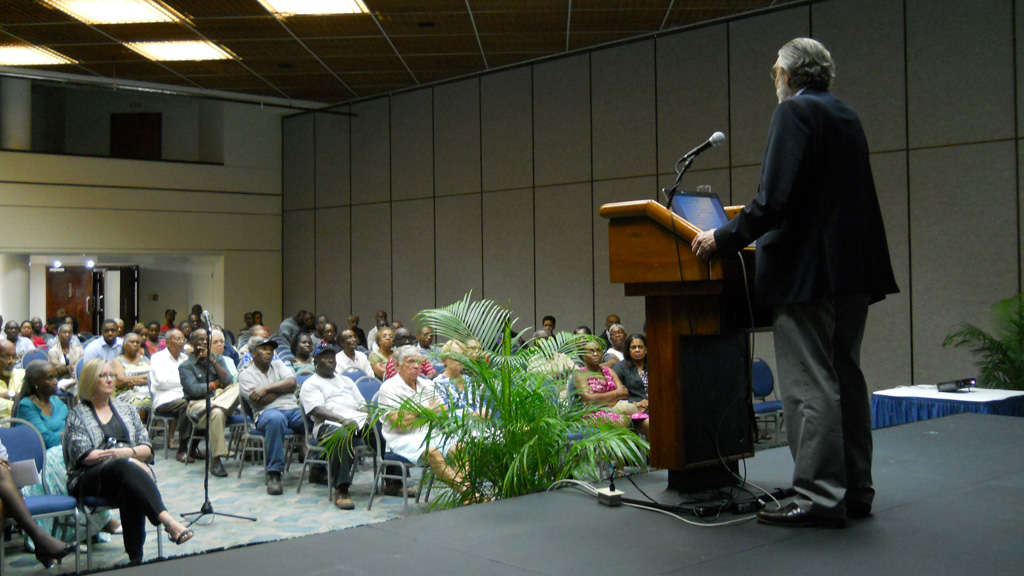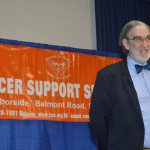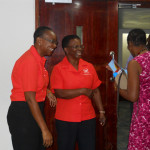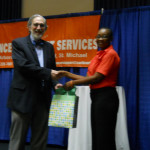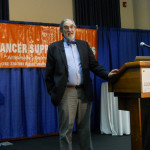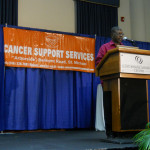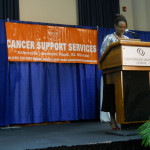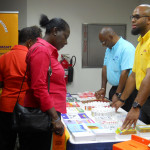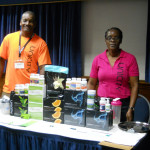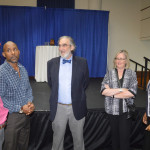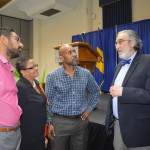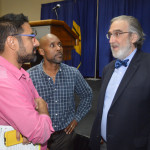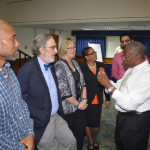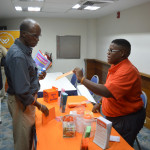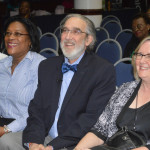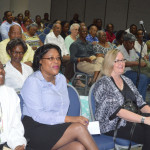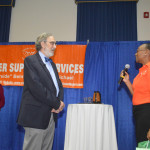On Wednesday March 11, 2015, Cancer Support Services hosted a Public Lecture entitled “Prehabilitation” and “Survivorship” What Do These Concepts Mean to Cancer Patients? by Prof. Richard Wassersug, PhD of British Columbia, Canada at the Lloyd Erskine Sandiford Centre, Two Mile Hill, St. Michael at 6:30pm.
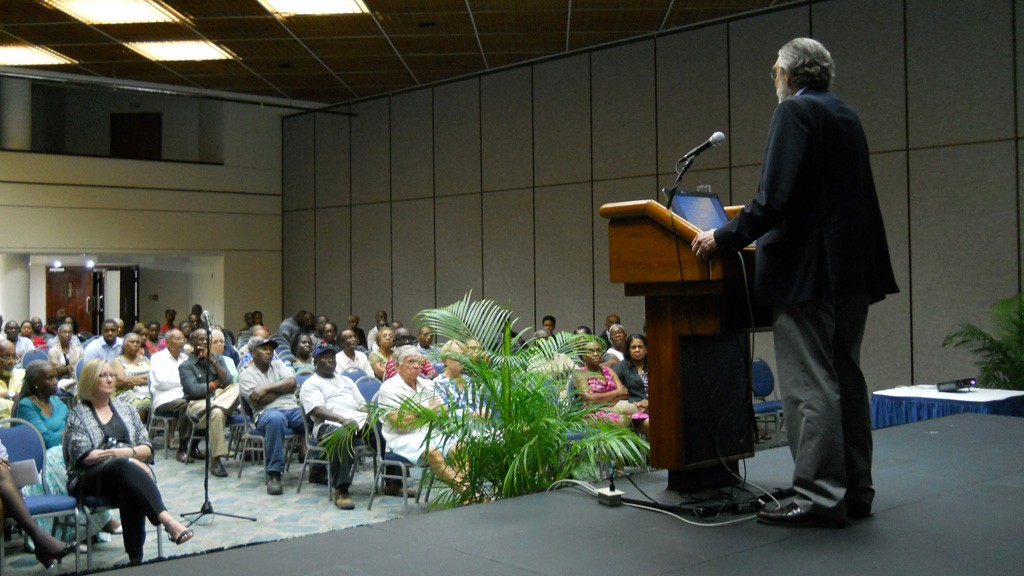
Prof. Wassersug, who is also a 16 year survivor of Prostate Cancer, began his talk by “Defining Key Term” those being “Survivorship” and “Prehabilitation” respectively.
About Survivorship, Prof. Wassersug had this to say:
The US Institute of Medicine defines “survivorship” as “the distinct phase in the cancer trajectory between the end of primary treatment and the recurrence or end of life.”
- However, psychological distress from cancer starts for most of us earlier, with a diagnosis of “the big C”.
- I use “survivorship” to refer to all the distress brought on by cancer…independent of the treatments themselves that specifically target the cancer.
- Fastest growing area within cancer—due to improvements in screening, detection, and treatment.
- The yearly increase in the number of “cancer survivors” is now in North America ~ 2.5%, reflecting better detection and true cures.
- For all cancers (in Canada), the overall increase in survival has been 7.3% from back in 1992-94 to 2006-2008.
Excerpt from Prof. Wassersug’s presentation.
Prof. Wassersug stressed that there are benefits related to screening and early detection with tests such as the Prostate Specific Antigen Test and the Mammogram in that, with proper use of these tests, these cancers (Prostate, Breast, Colorectal etc.) can be picked up early and treated even before they are symptomatic.
However Prof. Wassersug did note that there is some bad news associated with screening as seen in the below excerpt;
“Curative treatments for these cancers (and many others) have major side effects:
- Breast cancer surgery can leave a woman deformed and with lymphedema.
- Prostate cancer surgery can leave a man with urinary incontinence and erectile dysfunction.
- Colorectal surgery can leave a person with a colostomy.
Increasingly the challenge for patients is not the cancer itself, but the side effects of cancer treatments!”
Prof. Wassersug branched off into the second focus of his talk, “Prehabilitation” explaining the term with the following excerpts;
- Historically prehabilitation has primarily focused on exercise to strengthen parts of the body before orthopedic surgery.
- However prehabilitation in the cancer setting can be much more than that.
Definition of “Prehabilitation”;
“…a process on the continuum of care that occurs between the time of cancer diagnosis and the beginning of acute treatment…”
Prehabilitation “provides targeted interventions that improve a patient’s health to reduce the incidence and the severity of current and future impairments.”
REF: Silver JK & Baima J 2013 Cancer prehabilitation: an opportunity to decrease treatment-related morbidity, increase cancer treatment options, and improve physical and psychological health outcomes. American Journal of Physical Medicine & Rehabilitation 92:715-727.
Along the lines of prehabilitation Prof. Wassersug also touched on other topics which tend to be among the FAQs of Cancer Patients such as :
Exercise and Cancer
“For breast cancer, “Exercise can reduce fatigue, depression and anxiety, improve quality of life and self-esteem, as well as cardiorespiratory fitness, muscle strength, physical functioning and body composition.”
In addition…cancer patients may be at…risk for cardiac events owing to cardiotoxic therapy [and] exercise can mitigate cardiovascular impairments.”
The quote is from a paper on breast cancer, but it is also true for prostate cancer.”
Obesity and Cancer
“Obesity is a major problem for many cancer patients, as is mobility, quality of life…and sometimes patients’ access to treatment. The biggest dietary challenge for patients starting cancer treatment is getting in, and staying in, a good weight range.
Many patients change their diets when confronted with a cancer diagnosis, but too many then look for a “miracle diet”, a “miracle elixir”, rather than seriously cutting back on their caloric intact.”
Nutritional Considerations
“Dietary needs are often geographically specific. Canadians, for example, are more likely to be Vit D deficient than folks here in Barbados. Taking Vit D and calcium supplements is often warranted for patients on drugs that can weaken their bones.
One prehabilitative study in 2013, which included a high protein dietary supplement (along with exercise and psychological support to reduce anxiety) before colorectal cancer surgery, doubled the % patients who had recovered at 8 weeks post-surgery.”
While the lecture was predominantly covering “Prehabilitation” and “Survivorship”, Prof. Wassersug made it abundantly clear that the cancer patient is not alone in his/her diagnosis. He stressed that a diagnosis of cancer affects the patient as well as the caregiver and family. In this vein he stressed the importance of counseling and applauded Cancer Support Services for providing such a service not only for patients but their dependants as well.
Prof. Wassersug called out all Doctors and implored that when treating the patient to also think about the caregiver. A simple “…and how are you doing?” can go a long way.
Overall, the lecture was extremely informative and touched on topics which commonly surface in frequently asked questions from cancer patients.
Reviewed by D.A.H
Here are some more images from this event.

